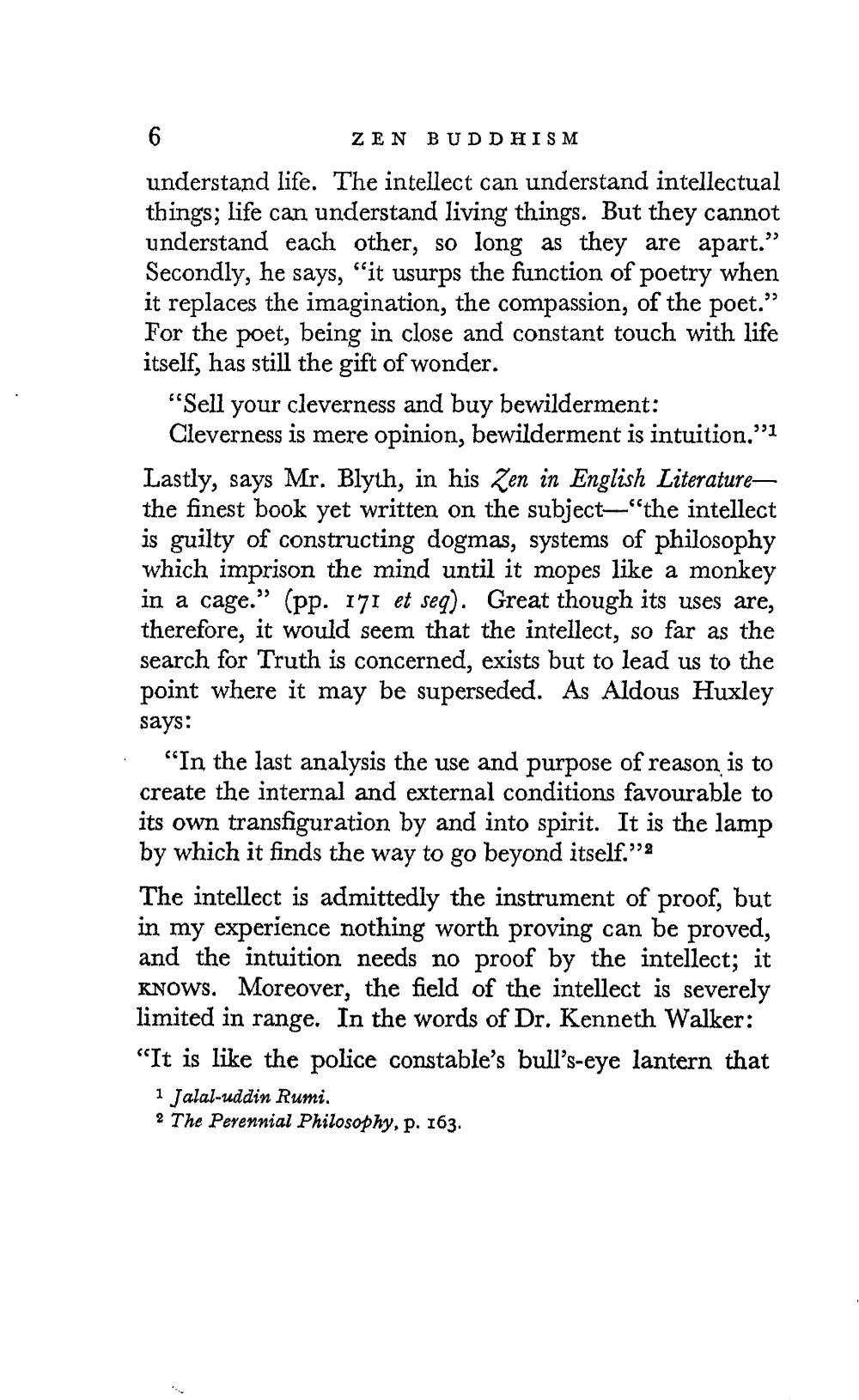________________
ZEN BUDDHISM understand life. The intellect can understand intellectual things; life can understand living things. But they cannot understand each other, so long as they are apart.” Secondly, he says, "it usurps the function of poetry when it replaces the imagination, the compassion, of the poet." For the poet, being in close and constant touch with life itself, has still the gift of wonder. "Sell your cleverness and buy bewilderment:
Cleverness is mere opinion, bewilderment is intuition."I Lastly, says Mr. Blyth, in his Zen in English Literaturethe finest book yet written on the subject—"the intellect is guilty of constructing dogmas, systems of philosophy which imprison the mind until it mopes like a monkey in a cage." (pp. 171 et seq). Great though its uses are, therefore, it would seem that the intellect, so far as the search for Truth is concerned, exists but to lead us to the point where it may be superseded. As Aldous Huxley says:
"In the last analysis the use and purpose of reason is to create the internal and external conditions favourable to its own transfiguration by and into spirit. It is the lamp by which it finds the way to go beyond itself.” 2 The intellect is admittedly the instrument of proof, but in my experience nothing worth proving can be proved, and the intuition needs no proof by the intellect; it KNOWS. Moreover, the field of the intellect is severely limited in range. In the words of Dr. Kenneth Walker: "It is like the police constable's bull's-eye lantern that
1 Jalal-uddin Rumi. 2 The Perennial Philosophy, p. 163.




